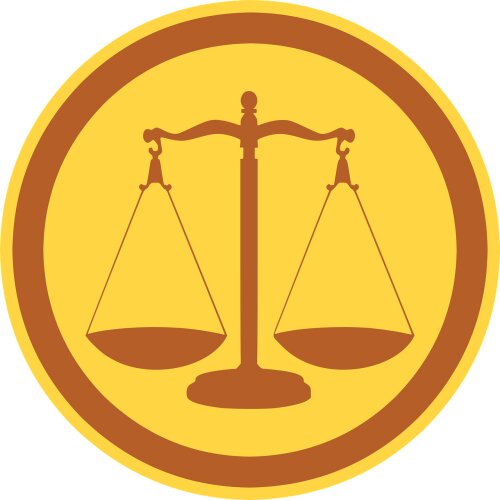Best Appeal Lawyers in Ranchi
Share your needs with us, get contacted by law firms.
Free. Takes 2 min.
List of the best lawyers in Ranchi, India
About Appeal Law in Ranchi, India
Appeal law in Ranchi, India, pertains to the process by which a party in a legal dispute can request a formal change to an official decision. The appeal process allows a higher court to review the decision made by a lower court. Ranchi, being the capital city of Jharkhand, has its appeals managed by the Jharkhand High Court or other relevant appellate courts. This process is a crucial part of the justice system as it ensures fairness and correction of any potential errors made during the initial trial.
Why You May Need a Lawyer
There are numerous scenarios where hiring a lawyer specialized in appeals can be indispensable:
- After receiving an unfavorable judgment from a lower court that affects your rights or interests.
- If there are procedural errors or legal misinterpretations in the initial trial.
- When seeking to contest criminal convictions or civil judgments.
- If you are involved in complex legal issues requiring expert legal representation in higher courts.
- When navigating through intricate paperwork and strict deadlines of the appellate process.
Local Laws Overview
The local laws concerning appeals in Ranchi are governed by the Code of Civil Procedure (CPC), the Code of Criminal Procedure (CrPC), and various specific statutes relevant to specific types of cases. Key aspects to be aware of include:
- The jurisdiction and authority of the Jharkhand High Court and other appellate bodies.
- Specific timelines and procedural requirements for filing an appeal.
- Grounds on which an appeal can be filed, such as legal errors, procedural mistakes, and misinterpretation of laws.
- Steps involved in presenting the appeal, including submission of a memorandum of appeal, compiling records, and presenting arguments.
- Potential outcomes, such as upholding the original decision, reversing it, or remanding the case back to the lower court for further proceedings.
Frequently Asked Questions
1. What is an appeal?
An appeal is a legal process where a higher court reviews the decision of a lower court to ensure that the legal process was correctly administered.
2. When can I file an appeal?
You can file an appeal after a final judgment or order has been rendered by a lower court if you believe there were legal errors affecting the decision.
3. What are the grounds for filing an appeal?
Common grounds include errors in applying the law, procedural mistakes, and insufficient or misinterpreted evidence.
4. How long do I have to file an appeal?
The time limit for filing an appeal varies depending on the type of case and specific rules of the court. Generally, it ranges from 30 to 90 days from the date of the judgment.
5. What documents are required to file an appeal?
Essential documents include the notice of appeal, a copy of the original judgment, and the memorandum of appeal outlining the grounds and arguments for the appeal.
6. Do I need a lawyer to file an appeal?
While it is possible to file an appeal without a lawyer, it is highly recommended to seek legal counsel due to the complexity of appellate procedures and requirements.
7. Can new evidence be presented in an appeal?
Generally, appeals are based on the existing record from the lower court trial. New evidence is typically not admitted unless exceptional circumstances apply.
8. What are the possible outcomes of an appeal?
The appellate court can affirm the original decision, reverse it, or remand the case back to the lower court for further proceedings.
9. Is the appellate court's decision final?
An appellate court's decision can be further appealed to a higher appellate court, such as the Supreme Court, under specific circumstances.
10. How long does the appeal process take?
The duration of the appeal process varies based on case complexity, court workload, and other factors. It can range from several months to a few years.
Additional Resources
For further assistance, consider reaching out to the following:
- Jharkhand High Court: For information on appellate procedures and cases.
- District Legal Services Authority (DLSA): They provide free legal aid and services to eligible individuals.
- Law libraries and public legal education centers: For research and resources on appellate law.
Next Steps
If you need legal assistance with an appeal, here are the steps to follow:
- Consult with a qualified appellate lawyer to discuss your case details and grounds for appeal.
- Gather all necessary documents and evidence related to your case.
- File the appeal within the specified time frame and ensure compliance with procedural requirements.
- Prepare for oral arguments and be ready to present your case in the appellate court.
- Stay informed about your case progress and communicate regularly with your legal counsel.
By following these steps and seeking expert legal advice, you can navigate the appellate process effectively and increase the chances of a favorable outcome.
Lawzana helps you find the best lawyers and law firms in Ranchi through a curated and pre-screened list of qualified legal professionals. Our platform offers rankings and detailed profiles of attorneys and law firms, allowing you to compare based on practice areas, including Appeal, experience, and client feedback.
Each profile includes a description of the firm's areas of practice, client reviews, team members and partners, year of establishment, spoken languages, office locations, contact information, social media presence, and any published articles or resources. Most firms on our platform speak English and are experienced in both local and international legal matters.
Get a quote from top-rated law firms in Ranchi, India — quickly, securely, and without unnecessary hassle.
Disclaimer:
The information provided on this page is for general informational purposes only and does not constitute legal advice. While we strive to ensure the accuracy and relevance of the content, legal information may change over time, and interpretations of the law can vary. You should always consult with a qualified legal professional for advice specific to your situation.
We disclaim all liability for actions taken or not taken based on the content of this page. If you believe any information is incorrect or outdated, please contact us, and we will review and update it where appropriate.













